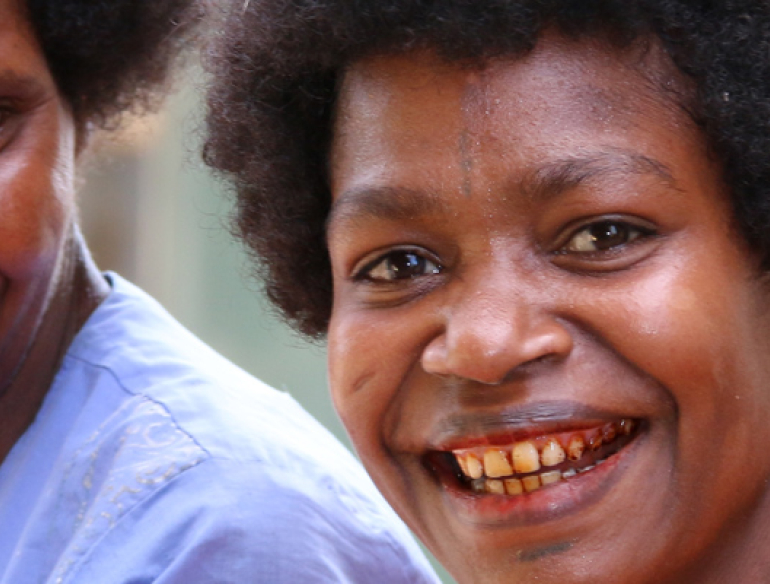Women in many low-income countries worldwide face a high and unacceptable burden of adverse pregnancy outcomes. Curable, sexually transmitted and genital infections (STIs), such as chlamydia, gonorrhoea, trichomonas and bacterial vaginosis, are major contributors to this disease burden but the majority of infections go untreated because most infections are asymptomatic, and affordable, easy to use and accurate diagnostic tests are unavailable in such settings. At the same time, there is conflicting evidence on the potential risks and benefits of STI screening and treatment in pregnancy, hindering policy and practice and leading to calls for definitive field trials.
The aim of the WANTAIM Trial is to measure the effectiveness, health system requirements, cost-effectiveness and acceptability of antenatal point-of-care testing and treatment of sexually transmitted and genital infections to improve birth outcomes in high-burden, low-income settings.
The primary objective of the trial is to evaluate whether point-of-care testing and immediate treatment of curable STIs in pregnancy leads to a reduction in preterm birth and low birth weight compared with standard antenatal care.
WANTAIM is a cluster randomised crossover trial being conducted at 10 sites in three provinces in Papua New Guinea. A total of 4600 pregnant women and their newborn infants will be enrolled and followed-up at participating antenatal clinics. Information on maternal and newborn health outcomes will be collected at 72 hours, 1 – 2 weeks and 4 – 6 weeks after childbirth.
The trial is expected to start recruitment in early 2017 and will take up to four years to complete.
Trial results are anticipated in late 2019.
If antenatal point-of-care STI testing and treatment is proven to have an impact on birth outcomes, the WANTAIM Trial will hasten access to these technologies and could thereby improve maternal and neonatal health in all high-burden, low-income settings worldwide.
- Dr William Pomat, Acting Director, Papua New Guinea Institute of Medical Research, Goroka, Papua New Guinea (Co-Chief Investigator)
- Prof Suzanne Garland, Director of Microbiological Research and Head of Clinical Microbiology and Infectious Diseases Royal Women's Hospital; Professor, Faculty of Medicine, Dentistry and Health Department of Obstetrics and Gynaecology University of Melbourne
- Prof Caroline Homer, Director of Centre for Midwifery, Child and Family Health, Faculty of Health, University of Technology Sydney
- Dr Grace Kariwiga, Consultant Obstetrician & Gynaecologist, Alotau Provincial Hospital, Milne Bay Provincial Health Authority
- Prof Nicola Low, Professor of Epidemiology and Public Health, Director of Research, University of Bern, Switzerland
- A/Prof Stanley Luchters, Principal for Sexual and Reproductive Health, Centre for International Health, Burnet Institute, Melbourne
- Prof Glen Mola, Head of Reproductive Health, Obstetrics & Gynecology, School of Medicine and Health Sciences, University of Papua New Guinea.
- Dr Chris Morgan, Principal Fellow, Centre for International Health, Burnet Institute, Melbourne
- Prof Rosanna Peeling, Professor and Chair of Diagnostics Research, Department of Clinical Research, London School of Hygiene and Tropical Medicine, UK
- Prof Stephen Rogerson, Department of Medicine (RMH/WH), University of Melbourne
- Prof Peter Siba, Former Director, Papua New Guinea Institute of Medical Research, Goroka, Papua New Guinea
- Prof Sepehr Tabrizi, Department of Microbiology, Division of Laboratory Services, The Royal Women's Hospital and The Royal Children's Hospital; Professor, Faculty of Medicine, Dentistry and Health, Department of Obstetrics and Gynaecology, University of Melbourne
- A/Prof David Whiley, Queensland Paediatric Infectious Diseases (QPID) Laboratory; Queensland Children's Medical Research Institute (QCMRI); Sir Albert Sakzewski Virus Research Centre (SAVRC), Royal Children's Hospital, Brisbane
- Department for International Development (DFID)/UK Medical Research Council (MRC)/Wellcome Trust Joint Global Health Trials Grant MR/N006089/1
- National Health and Medical Research Council (NHMRC) Project Grant GNT1084429
- Swiss National Science Foundation Grant IZ07Z0160909/1

